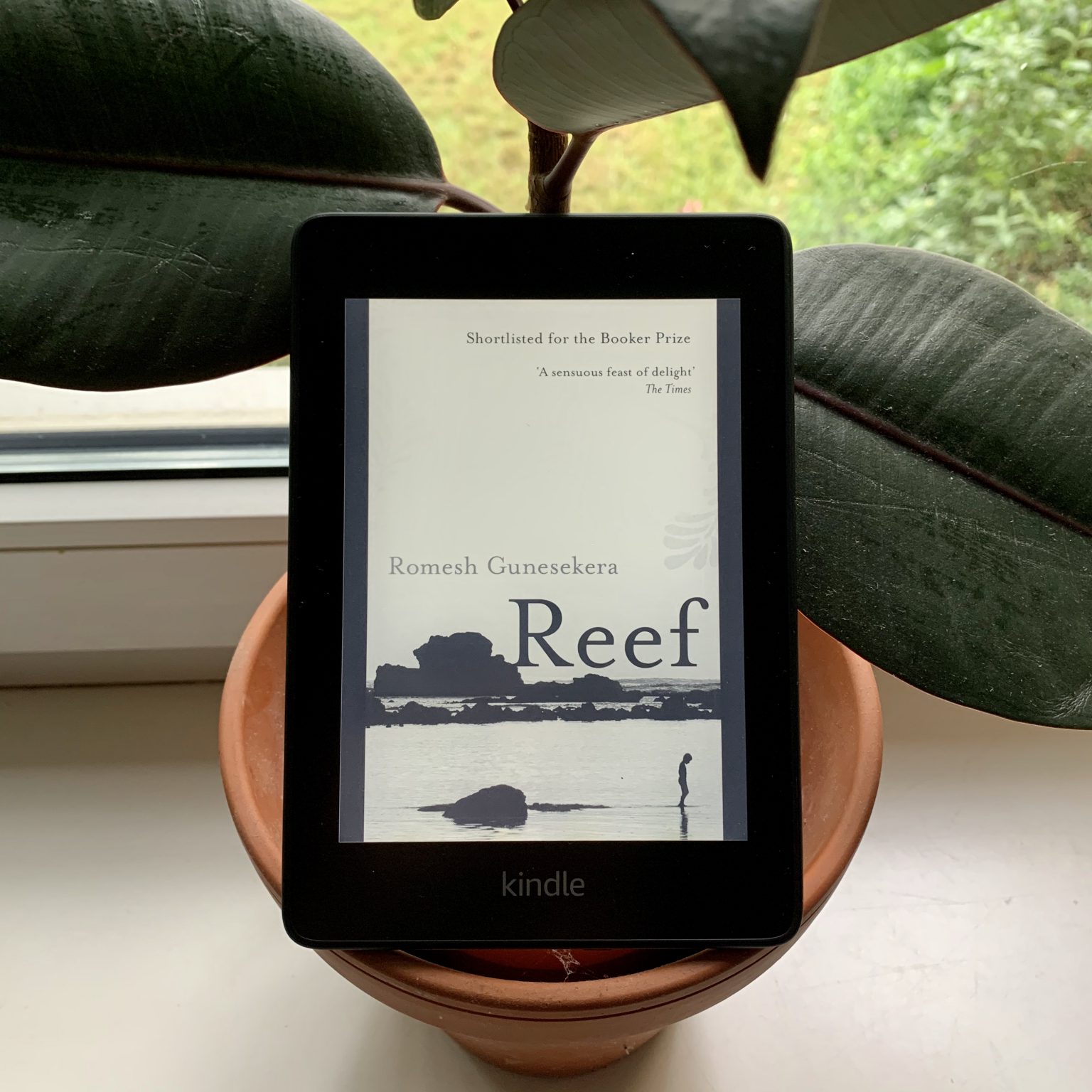

More than anything else, Reef is a culinary novel, a mouthwatering tour through the joys and virtues of the country's cuisine. Throughout the novel the first-person narrator emphasizes an ahistorical perspective, focusing on the different household chores, rather than on the serious political problems of the island.

Reef is the story of young Triton, who works as cook and factotum for the marine biologist Mr. Gunesekera's powerful first novel, Reef, shortlisted for the prestigious Booker Prize in 1994, puts even more emphasis on the domestic space while the grim violence of the war looms large in the background.

An introductory note informs us that "There are no monkfish in the ocean around Sri Lanka." While there is no political hiding place in the now spoilt paradise, Gunesekera tries to capture and maybe thereby aesthetically to salvage his home country. As we learn from the fat, aging business magnate Peter, who always wanted to live like a monk in complete detachment, for good meat you need a good moon. So in "A House in the Country," the developing comradeship between master and servant is sundered as the trace of destruction comes closer and closer "Batik" sees the split between Tamil husband and Sinhala wife (though the story ends on a more optimistic note) the protagonist in "Ranvali" visits her father's beach bungalow after many years and cherishes nostalgic reminiscences of a time before her father turned to political activism and estranged himself from his family the final story, "Monkfish Moon," elaborates on the whole collection's title. Gunesekera focuses on personal misunderstanding and the breakdown of communication, on the parting and fracture of human relationships. It is only obliquely, however, that the violence enters the stories. The nine stories revolving around the turmoil of Sri Lanka's civil war are haunted with the striking violence introduced to the Edenic island by the fighting groups. Gunesekera's first volume, the short-story collection Monkfish Moon, received much acclaim. If a comparison had to be suggested, probably Amitav Ghosh comes most closely, especially with regard to Gunesekera's The Sandglass (1998)-which is strongly reminiscent of Ghosh's The Shadow Lines-a fascinatingly controlled novel whose narrator's mind continuously shuttles between home and away, building a kind of uneasy bridge between Sri Lanka and England. Naipaul's venom, or Bharati Mukherjee's uncompromisingdisdain. The immigrant experience informs all of Gunesekera's writing, but in a decidedly different vein than Rushdie's comic grotesquerie, V.S.


 0 kommentar(er)
0 kommentar(er)
